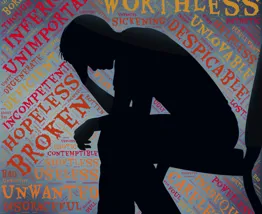Enrol in an online course today for flexible, self-paced learning—no fixed schedule required. Plus, enjoy lifetime access to course materials for convenient revisiting.
Speaking Out For Women’s Mental Health
 Photo Credit : Eblis
Photo Credit : Eblis
We live in a culture that still privileges men over women. And it’s tiring, this constant battle for equality and women’s rights fought by women and girls all over the world, every single day.
Today marks International Women’s Day and the 2021 UN theme for this year is ‘Women in leadership: achieving an equal future in a Covid-19 world’. This theme highlights the key and critical role that girls and women worldwide have had as health care workers, caregivers, innovators and community organisers during this unprecedented time.
For me, as a woman, the Director of PESI UK and a UKCP registered psychotherapist specialising in trauma and adversity, it also speaks to the disproportionate impact that the pandemic has had on women’s mental health – and the importance of ensuring our mental health services are more gender aware going forward.
To say that the last year has been stressful for almost everyone, in some way, would be an understatement. However, we know that women have been more vulnerable to the impact because of existing inequality. Women are more likely to be carers, and the pandemic has increased the burden of unpaid care. Women are more likely to be responsible for childcare, which over the past year has also meant being responsible for homeschooling. Women are more likely to be in low paid work – which also means they have been both more likely to lose their jobs during the pandemic, and more likely to be frontline workers. For women from marginalised ethnic communities, the financial and psychological consequences have been found to be greater still.
Women have also been disproportionately affected by the rise in domestic violence associated with lockdown. While less reported by the mainstream media, there is also evidence that other forms of gender based violence against women and girls, such as sexual violence, increased during lockdown.
And we are just starting to learn about the impact of the pandemic on experiences of pregnancy, childbirth and early motherhood. Some frontline service providers warn that the disruption of maternity services is creating a ‘mental health epidemic’, in addition to cases of PTSD linked to giving birth during the pandemic. We can also imagine how mothers will have been impacted by the temporary closure of community services and informal groups – whole networks of in-person support out of grasp just when they are most needed.
Before the pandemic, research showed that women were more likely to have been treated for a mental health issue than men – more likely to be treated for depression, more likely to develop an eating disorder, more likely to experience anxiety, more likely to develop PTSD. While it is true that women may be more likely to talk about and seek help with their mental health, this cannot account for all the disparity. For instance, abuse is often a factor in women’s mental health issues.
In recent years there has been more recognition of the mental health needs of women, and the way in which gender barriers can operate within the mental health system. But one thing is clear to me as we start to emerge through this pandemic: not all women’s mental health issues are best dealt with by mental health interventions. As therapists, we must also continue to speak out and change the socio-cultural, health, economic, legal and environmental factors that affect women and their role in society. Only by responding to the complexities and particularities of women’s lives at every level and in every country, can we together improve women’s mental health and quality of life.


















